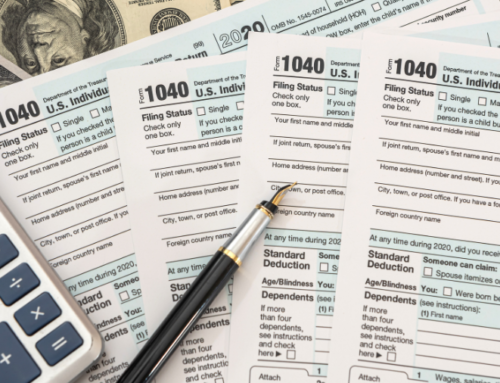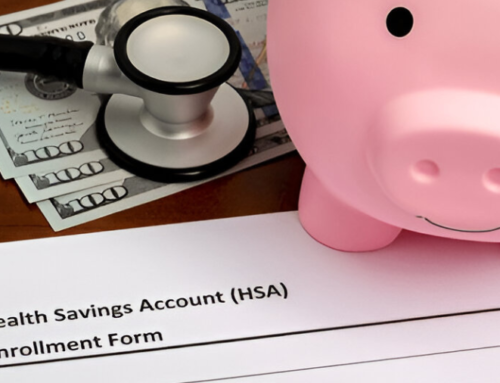New York is one of the most progressive cities in the US, and it offers unique tax deductions and credits.
Naturally, federal employees need to make strategic financial decisions to manage federal and state-level tax requirements.
Interestingly, New York’s state income taxes directly impact the take-home pay for federal employees.
Retirement planners for federal employees provide comprehensive insights related to the tax regulations in New York. These guidelines assist federal employees to avoid penalties and optimize their financial benefits during retirement.
Staying informed is essential to identify changes in the taxation of federal salaries, pensions, and residency obligations.
Financial advisors can help federal employees decode the complex local and city-specific tax rules in New York.
Overview of New York State Income Tax
New York imposes one of the highest tax burdens in the country. Key state income tax attributes indicate –
- Eligibility for tax deductions and credits based on the bracket of income.
- Local taxes in NYC increase the overall liability for employees.
- The residency status and income threshold directly impact the tax filing criteria.
An in-depth tax knowledge helps federal employees determine the additional considerations that impact taxes. Some of these situations are –
- Identify how federal salaries are taxed at a state level to make liability management strategies.
- Determine the specific state tax treatment for federal pensions.
- There is a chance of dual taxation if a federal employee works in New York but has a different home state.
The main characteristics of the New York tax system indicate –
- Income tax rates are determined based on earnings, ranging from low to high brackets, which vary between 4 and 10.9 percent.
- The option between standard and itemized deductions.
- Several tax credit options to reduce tax burden through childcare, earned income, and property taxes.
The rates of New York’s income taxes rise with a hike in earnings. Here is a breakdown of the tax structure –
- Low-Income – The lowest rate of income tax starting from 4 percent.
- Middle Income – Employees who earn comparatively better than the low-income bracket candidates but less than the high-income candidates are charged 6-6.85 percent state income tax in New York.
- High Income – The highest rate of tax deductions for people who earn more than $25 million in a year.
Read Also: Federal Employees’ Guide To FEHB Premium Hikes in 2025
Special Tax Implications for Federal Employees
The compensation structure and employment benefits make federal employees susceptible to a complex tax structure. It is pivotal to navigate these special tax considerations to maximize retirement benefits. Get a glimpse into the special tax rules for federal employees in New York –
1. Federal Salary Tax Treatment
- Federal employers withhold state income tax based on the state regulations in New York.
- The tax rules for federal employees who work in New York but reside in a different state are different and may be subject to dual income tax deductions.
- Several work-related expenses that may not be exempted under federal tax laws can be achieved through state-specific rules.
2. Cost of Living Adjustment (COLA) Tax Impositions
- Ordinary income tax is deducted from COLA in New York.
- Federal employees who reside in high-cost areas of NYC receive higher COLA. The taxable income and liabilities are increased.
- Inclusion of COLA factor into tax planning to avoid unexpected liabilities and penalties.
3. Federal Pension Tax Laws
- Federal employees who actively receive pensions under the Federal Employees Retirement System (FERS) and Civil Service Retirement System (CSRS) are subject to income tax deductions from this particular benefit in NYC.
- Retirees who are above 59 and a half years old can get income tax exemptions from their pension amount of up to $20,000 in one year.
- Federal retirees who relocate to New York with zero income can avoid complete pension taxation.
Residency Tax Rules in New York
Civilians in New York are classified for tax purposes based on their residency status. There are several categories. Here is a detailed breakdown of how to identify as a New York taxpayer –
- Resident – If the federal employee’s permanent residence is in New York and they have spent more than 183 days in the state.
- Statutory Resident – This applies to a federal employee who lives in New York due to employment. Recognizing out-of-state domiciles as New York residents under this rule.
- Non-Resident – Federal employees who do not reside in New York full-time are subject to taxation for any income earned from sources in NYC.
- Part-Year Residents – Federal employees who move in and out of New York during a tax year need to pay income tax on all earnings during their time in NYC and all state-specific income during non-residency.
- Military – Active military members living in New York can be exempt from certain state income taxes in NYC.
New York-Specific Credits & Deductions
Some ways how federal employees residing or working in New York can optimize their tax situation are –
1. Standard Deduction
Federal employees can choose this type of tax deduction if the liability becomes lower than itemizing. The filing status of the candidate determines their deduction model in New York. Tax filing statuses in NYC are –
- Single Filing – $8,000
- Joint Marriage Filing – $16,050
- Head of Household – $11,200
2. Itemized Deduction
Itemized tax deduction in New York follows all federal tax rules but with specific state-level rule adjustments –
- A combined deduction of up to $10,000 from state and local taxes.
- Medical and dental expenses that exceed 10 percent of the federal adjusted gross income are subject to tax deductions
3. Property Tax Reliefs & Credits
- Federal employees who own a primary residence in New York are eligible for School Tax Relief.
- A tax credit for federal employees who own or rent a property in New York based on specific income and property value thresholds.
- Additional property tax relief for federal retirees above 65 years old residing in New York.
4. Federal Tax Breaks
Federal employees in New York are eligible for unique tax credits based on the following employment criteria –
- Tax breaks of up to $20,000 from pension benefits for federal retirees above 59 and a half years old.
- Pre-deducted taxes for parking and public transportation in New York for federal employees.
- State tax return credit for volunteer firefighters and ambulance workers in New York.
- Federal employees who reside in New York are eligible for the Earned Income Tax Credit under certain criteria.
- Federal employees with dependent children within the age group of 4-17 years may qualify to get the Empire State Child Credit in NYC.
How Should Federal Employees File Taxes
Federal employees need to be aware of the unique state-specific rules and considerations for filing taxes in New York. Identify the tax filing requirements to streamline the process –
State & Federal Tax Obligations
- Essential to file for both state and federal tax returns if the income threshold is met.
- The state tax filing deadline usually aligns with federal tax filing dates typically set for April 15 every year.
- Full-time residents of New York need to report all sources of income including salary or pension.
- Reporting of New York-sourced income only for non-residents and part-year residents through Form IT-203.
Get a comprehensive guideline from a financial advisor for federal employees in New York to find out the proper tax filing procedure –
- Identify the residency status in New York and how it affects taxes.
- Ensure to fill up forms such as the W-2, 1099, 1099-G, Social Security Statements, and Investment Statements to report state refunds, dividends, and additional income.
- Determine the taxable income in New York such as thrift savings plan withdrawals, private sector income (if any), non-exempt self-employment income, federal pensions from CSRS or FERS, and Social Security benefits.
- Fill up the appropriate tax forms such as the IT-201 or IT-203 based on your New York residential status.
- Remember to apply eligible deductions and credits based on the tax filing status.
- Federal employees can fill out tax filing forms by visiting the online portal, completing paper documentation, and with the help of professional tax services.
Tax Filing Mistakes to Avoid
Navigate through these beneficial strategies to avoid pitfalls during tax filing –
- Careful evaluation of the residency status for federal employees to avoid misclassification of residency that leads to overpayment or underpayment of taxes.
- Failure to claim tax deductions such as the School Tax Relief or the Retirement Income Exclusion can cause loss of savings.
- Verification of all income sources and their state tax eligibility to ensure all cost-of-living adjustments are appropriately excluded or included within the taxable income bracket.
- Delays and penalties are incurred if deadlines or essential forms like 1099s and W-2s are missed.
Read Also: Protect Your Future Step-by-Step with Federal Retirement Planning in California
Strategies To Address Tax Challenges
New York has a complex tax system and effective strategies can reduce tax burden considerably. Navigate through the common challenges to make informed decisions –
- Optimize the residency status in New York to avoid tax overpayment or underpayment.
- Make the most of tax deductions and credits in New York by claiming applicable credits and itemizing to reduce taxable income.
- Make maximum contributions to pre-tax retirement accounts such as the TSP or health savings account to reduce taxable income.
- Manage property taxes by applying for tax relief programs.
- Utility of pre-tax commuter benefits to avoid taxable income.
- Maximize the source of tax-free income from Social Security benefits and federal pensions in New York.
- Make use of tax relief programs such as energy-efficient incentives in New York.
- Maintain a documented record of W-2 form, 1099 form, retirement plan statements, charitable donations, job expenditure receipts, and residency-related documents.
- Stay updated with New York tax law changes including adjustments to retirement account contribution limits, tax credits, and deductions.
State and Federal Tax Law Impacts
Here is a complete breakdown of the tax impact for federal employees in New York on a state and federal level –
- Salaries, retirement account withdrawals, and bonuses are all considered federal retirement income and will be taxed.
- Pre-tax contributions to retirement accounts such as TSP, HSA, and flexible spending accounts can benefit federal employees with tax deductions and exemptions.
- Federal employees who are also New York residents need to report all sources of income (without or outside the state) which are subject to state tax deductions.
- Federal employees who are working in New York but are non-residents will be taxed on their income earned within the state.
Best Tax Management Tips for Federal Employees
There are several strategies for federal employees to reduce their retirement income tax burden in New York –
- Make the most of the $20,000 exclusion from TSPs, IRAs, and private pensions where the claim money can be doubled if both spouses are eligible for retirement income.
- Distribute the withdrawals strategically from the TSP account over several years to avoid getting into a higher tax bracket.
- Prioritize the income sources that are state tax-exempted such as the Social Security benefits and federal pensions.
- Delay the TSP withdrawal options in retirement until the required minimum distribution (RMD) age to optimize returns.
- Consider the tax implications of different US states to determine an ideal relocation destination.
- Consult a financial planner for federal employees in New York to structure your withdrawals and minimize tax impact from income sources.
Read Also: Navigate Your Federal Benefits with Expert Retirement Guidance for Florida Employees
Takeaway
Making the most of tax exemptions, tax-free retirement accounts, eligible credits, and compliance with the tax filing requirements helps federal employees maximize their retirement savings and reduce tax burden.
Optimize financial benefits and secure your future source of income whether you are a full-time New York resident or if you are planning to relocate.
Consult with our experienced federal retirement financial advisors to prepare a personalized tax savings strategy and strengthen your portfolio.







